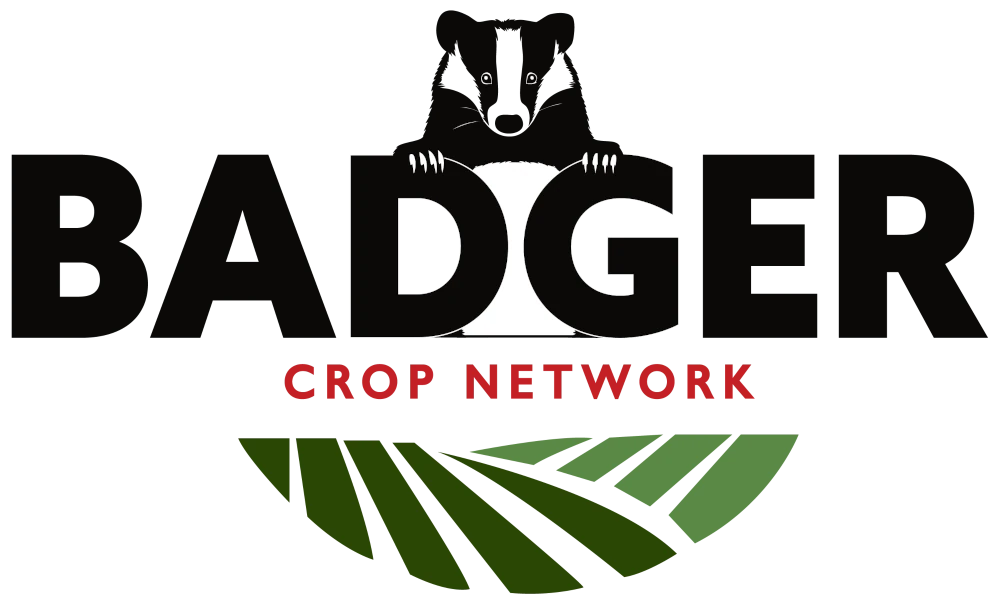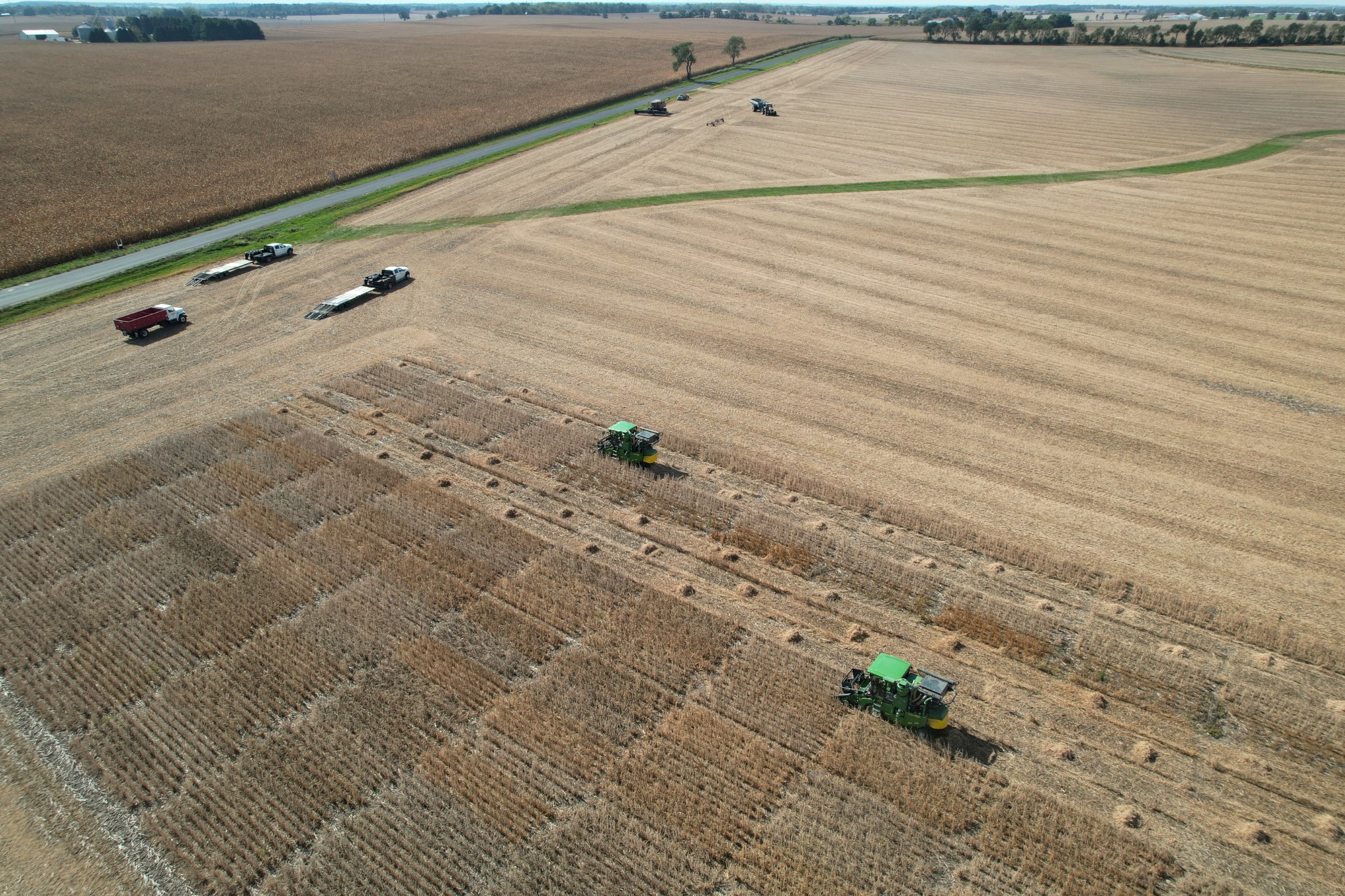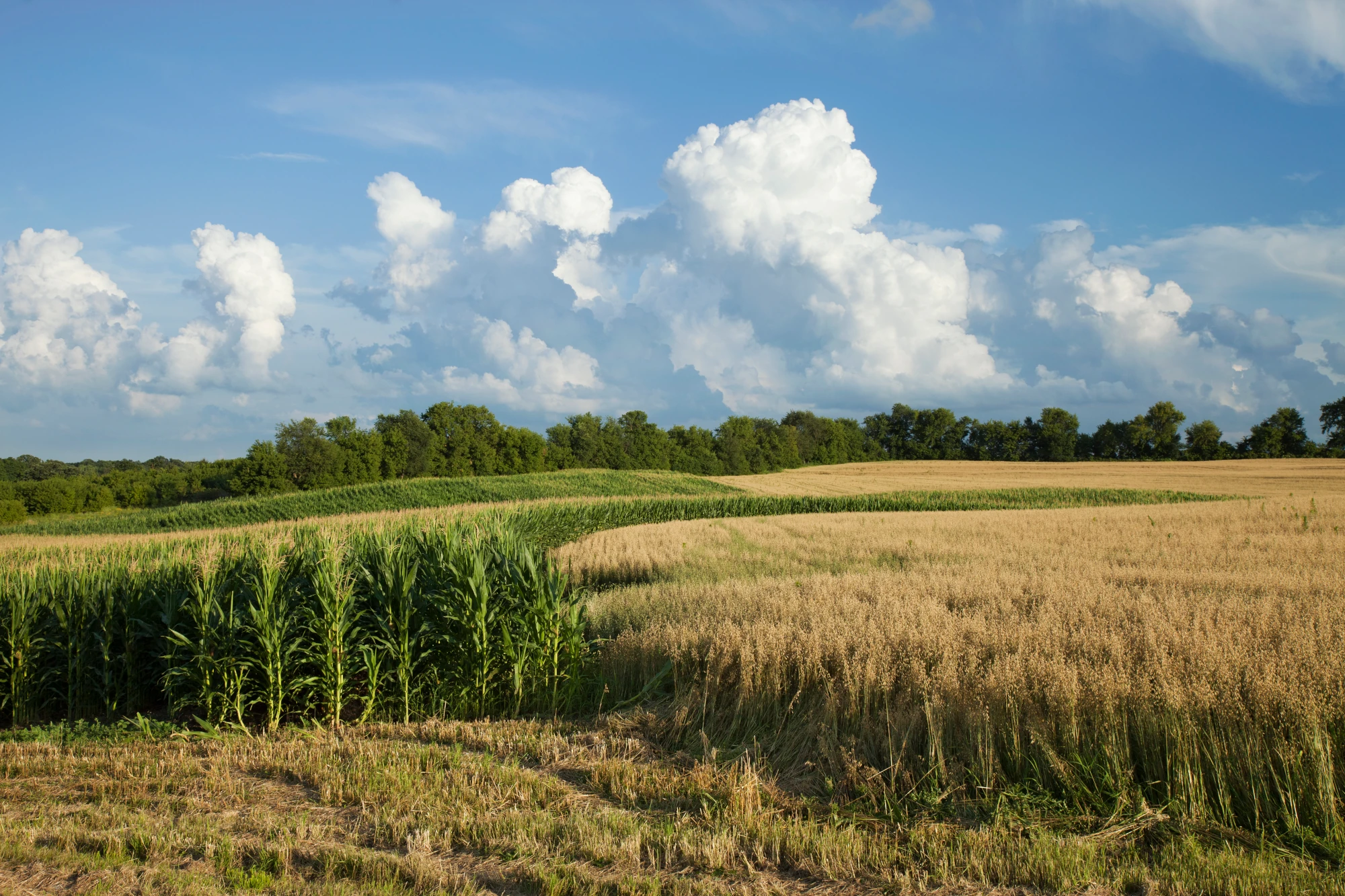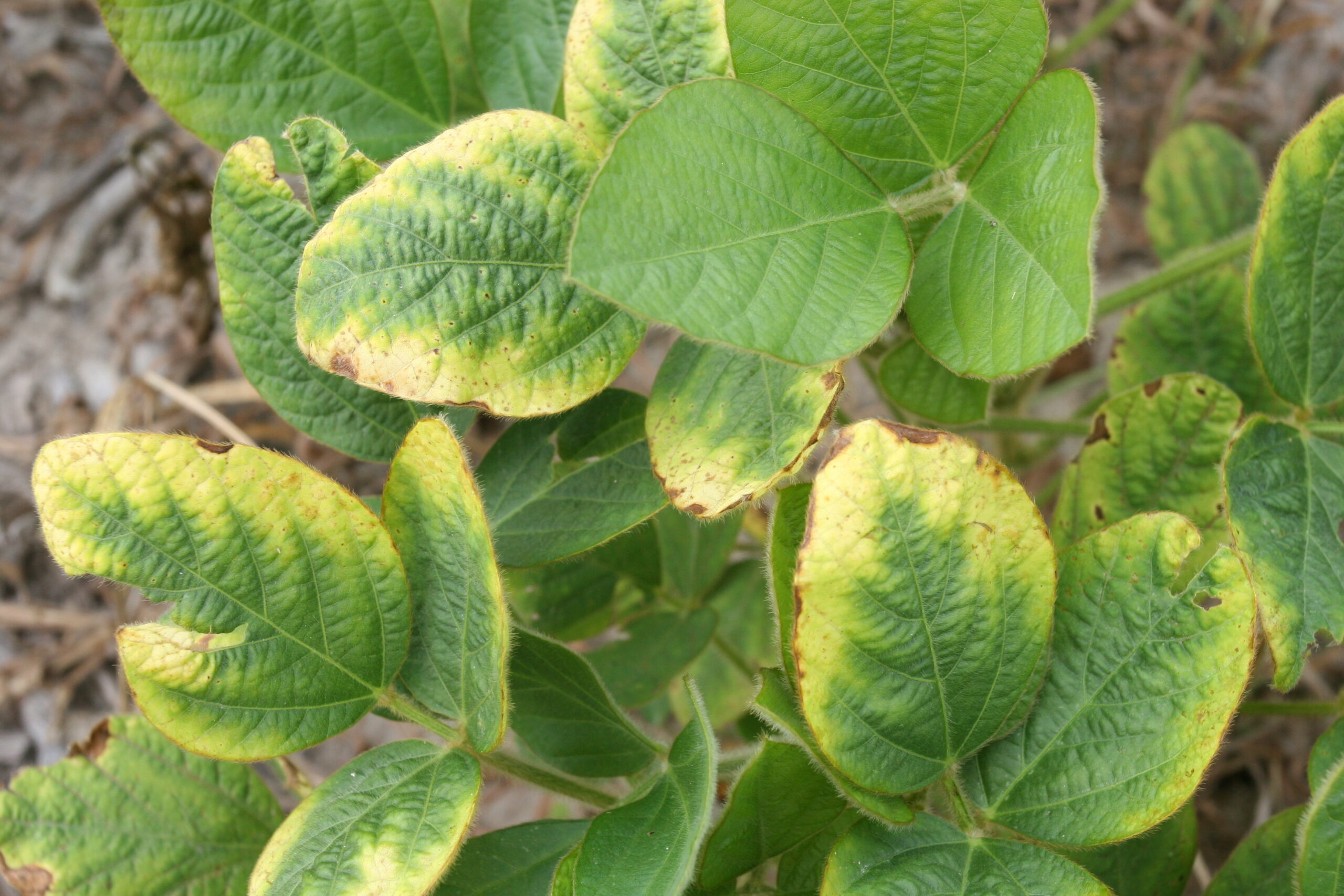About Badger Crop Doc & Our Team
Badger Crop Doc’s extension efforts focus on generating, evaluating, and disseminating solutions to many of the disease problems associated with field crops such as soybeans, corn, wheat and alfalfa. Information and potential solutions to disease problems are evaluated using applied research. Field studies include station and on-farm research to test epidemiological models, conduct pesticide evaluations, and improve the practical and biological understanding of various plant pathogens. We work closely with county extension agents, crop advisors, agribusinesses, and commodity groups to improve the management of the major diseases affecting field crops. We are responsible for developing disease management fact sheets, outreach courses, and electronic education resources.

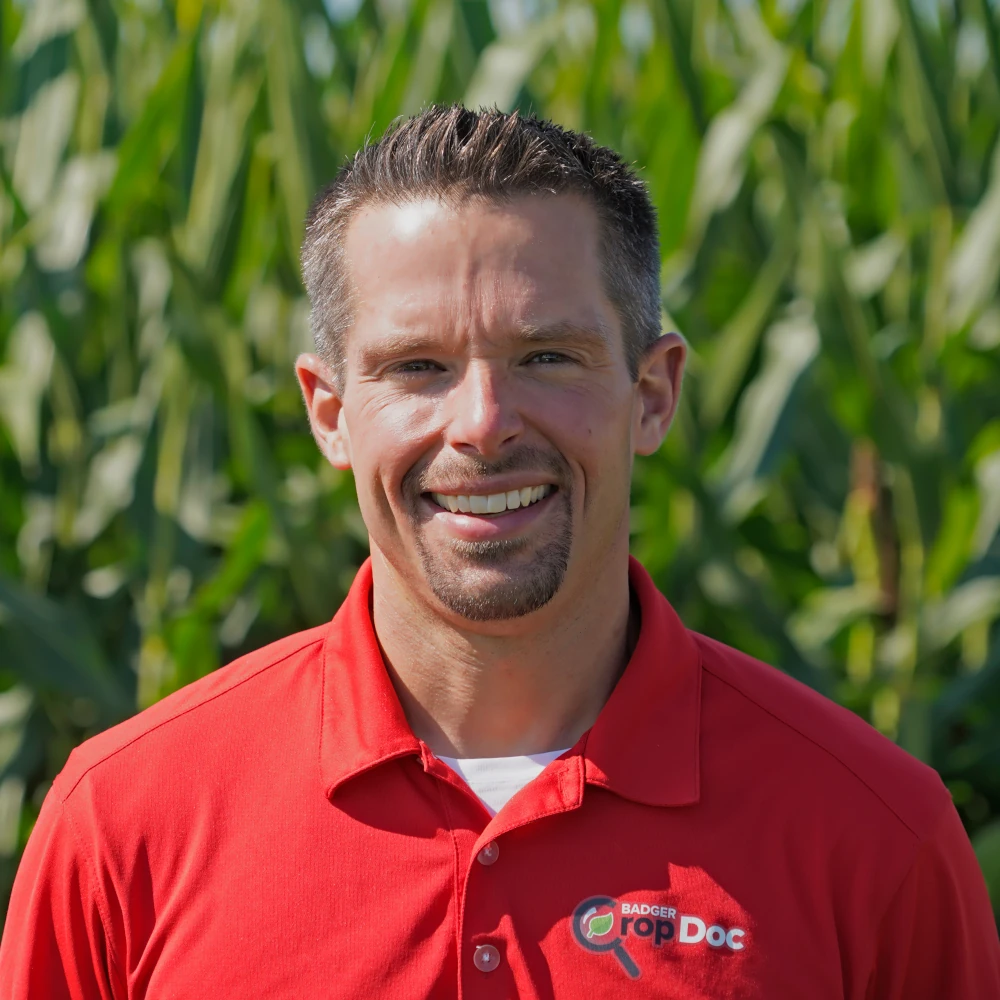
Damon L. Smith, Ph.D.
I am a native of the Finger Lakes Region of Western New York State. After graduating from the State University of New York (SUNY) College at Geneseo with a B.S. in biology in 2001 I moved to North Carolina. At NC State University I earned my M.S. degree in plant pathology in 2004. My thesis was titled “Biology and Epidemiology of Sclerotinia minor on Peanut (Arachis hypogaea L.).” I continued on with my doctoral research at NC State University and earned my Ph.D. in plant pathology in 2007. My dissertation title was “Improved Strategies for Controlling Sclerotinia blight of Peanut: Site-specific Disease Models and Advisory, Fungicide timing, and Pathogen Detection.” I then moved to Oklahoma State University where I was an assistant professor of plant pathology and horticulture extension pathologist in the Department of Entomology and Plant Pathology from 2007-2012. I conducted research on diseases of turfgrass, grapes, and pecans. I joined the faculty of the Department of Plant Pathology at The University of Wisconsin-Madison in September 2012. I was promoted to associate professor and extension plant pathologist in July 2018, and promoted again in July 2022 to professor and extension plant pathologist. I have research and management responsibilities for diseases of field crops including soybean, corn, wheat, and alfalfa.

Carol L. Groves, Ph.D. – Scientist II
I received my Ph.D. in Plant Science from the University of Arkansas then went on to a Post-doctoral position at North Carolina State University (NCSU). It was at NCSU that I began working with Phytophyhora infestans, the causal organism of Late Blight of potato and tomato. I spent several years at NCSU and with the USDA-ARS in Orono, Maine working on P. infestans. I took a few years away from science to raise my two children before coming back to work first in the UW-Entomology department and currently in the UW-Plant Pathology department.
My current responsibilities include managing the Field Crops Plant Pathology Lab, mentoring students and conducting research on soybean diseases, including but not limited to, soybean vein necrosis virus (SVNV), brown stem rot, pod and stem blight, and white mold. I also support the extension portion of the Field Crops Pathology program by writing, updating and revising extension literature.

Brian Mueller – Researcher II
I received my B.S. in Biology from the University of Wisconsin-La Crosse and earned my M.S. degree in plant pathology at the University of Wisconsin-Madison in 2017. My research in graduate school involved assessing an integrated management program for the control of stripe rust, caused by the fungal pathogen Puccinia striiformisf. sp. tritici, and examining population differences and aggressiveness characteristics of Fusarium graminearum, the primary causal agent of Fusarium head blight (FHB). Currently, I am the field technician for the Field Crops Plant Pathology Program.
Please contact me anytime at bmueller5@wisc.edu.
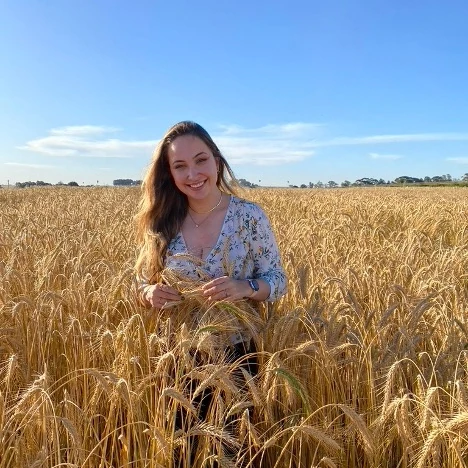
Sarah Caroline de Souza – Master’s Student
I am originally from a countryside city in the state of Sao Paulo, Brazil. In 2016 I started my bachelor’s degree in Agronomy at the Federal Institute of Education, Science, and Technology in the Southern Minas Gerais State where I graduated in 2022. During college, I mostly dedicated my time to researching different management tools for crops like soybean, corn, sorghum, and sunflower as well as studying the introduction of new wheat cultivars, in partnership with other universities in the state. In 2020 I was selected by the Ohio State University to participate in the international internship program for one year at the company South Central Growers in Springfield — TN, where I participated in the management and measurements of fertigation system parameters and collaborated on pot and garden trials of new cultivars. In 2022, in the state of Rio Grande do Sul located in the south of Brazil, I developed trials to test different chemical fungicides and their effects and results on soybean, corn, and wheat diseases along with different combinations of management tools to improve the results provided by fungicides aiming at better control of foliar and soil diseases. In 2023 I started my Master’s program in Plant Pathology at the University of Wisconsin – Madison while I collaborate in the research led in Damon Smith’s laboratory. The main focus of my research is to identify where are the areas with the occurrence of populations of Phytophthora sojae and Phytophthora sansomeana in the state of Wisconsin and determine what resistant soybeans cultivars available commercially, should be deployed in the state. We will use this information to improve the management recommendations for Phytophthora diseases in Wisconsin.
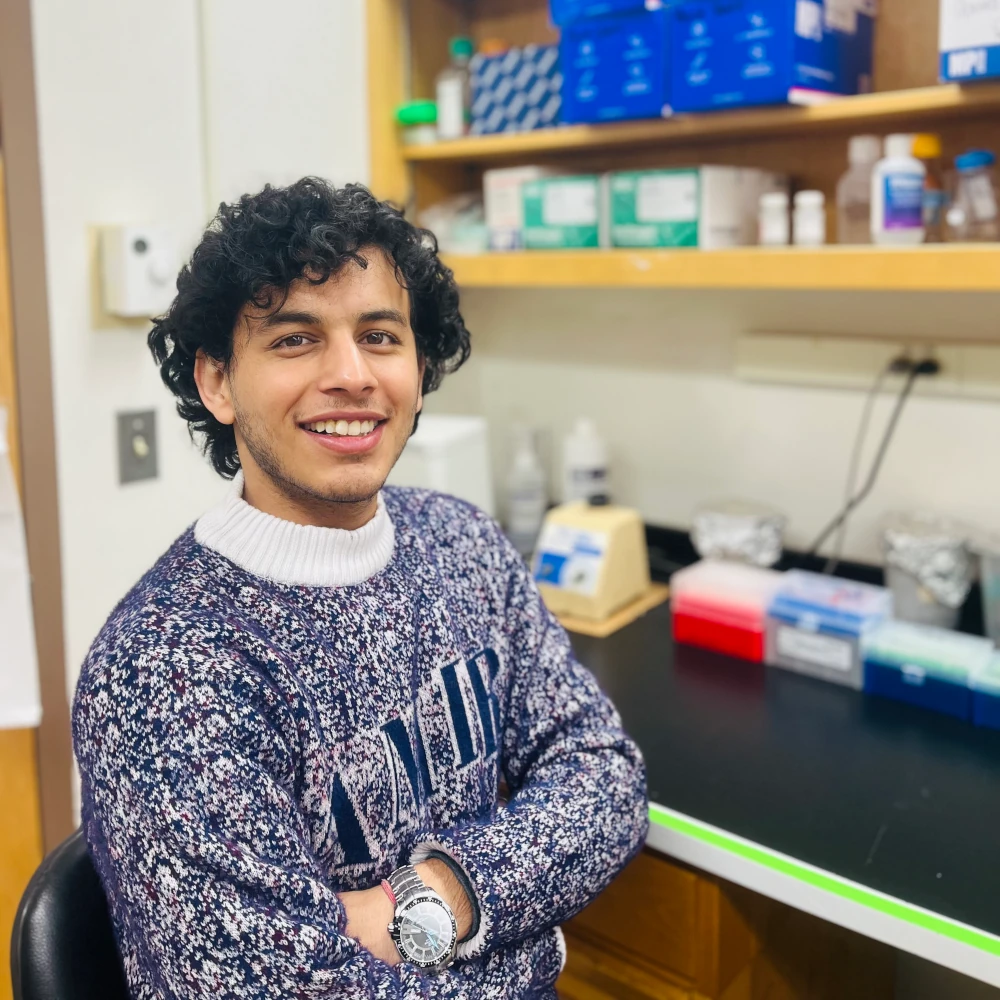
Amit Sharma – Doctoral Student
I am originally from Ludhiana city in the state of Punjab, India. Since I was always curious about plants, I chose agriculture as a field of study at very prestigious institute, Punjab Agricultural University (PAU), India which offered diverse coursework and practical training, which allowed me to obtain varied perspectives on upcoming challenges in agriculture locally and globally. I graduated with Bachelor’s in Agriculture (Hons.) in 2019 with specialization in crop protection with distinction where I enjoyed every bit of it as it was challenging to solve the mystery behind sick plants. After my undergrad, I worked as an intern in Department of Plant Pathology, PAU, where we performed field and lab experiments with Sclerotium oryzae causing stem rot of rice. My work was focused on studying the morphological and molecular variability of Sclerotium oryzae, different inoculation methods to test pathogenicity, testing various chemical fungicides and bio-control agents, and evaluating the virulence pattern of different isolates of Sclerotium oryzae on different rice cultivars having different level of resistance/susceptibility. I was then awarded with the Presidential Graduate Research Assistantship for my Master’s degree in Biology at University of Texas Rio Grande Valley. My MS research was focused more on epidemiological aspects, on how weather parameters influenced the incidence of citrus canker caused by the Aw strain of bacteria in the Rio Grande Valley. I joined the Smith Lab in Department of Plant Pathology at University of Wisconsin-Madison, in spring 2023, where my research is focused on Sclerotinia stem rot in soybean caused by Sclerotinia sclerotiorum. We are using a combination of field work and lab techniques to better understand the pathogen and epidemiology of the disease. It will help us to disseminate better management practices to farmer for controlling Sclerotinia stem rot. Additionally, I like to cook, read, run, exercise, and act.
